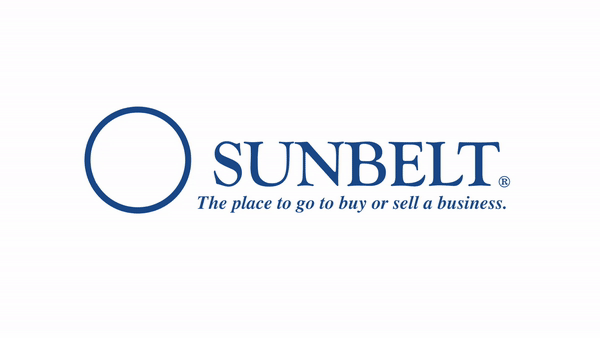
When selling a business for the first time, you may have certain expectations about the kind of buyer interested in purchasing it. However, it is often surprising for sellers to receive competitive and appealing offers from unexpected buyers. Let's explore the different buyers you may encounter while selling your business.
Your Family Members
One type of buyer that you might encounter is a family member. Selling your business to a family member can have advantages, such as maintaining a legacy and ensuring the business stays within the family. However, there can also be challenges, such as navigating personal relationships alongside business transactions.
Competitors and Synergistic Buyers
Another type of buyer you might come across is competitors or synergistic buyers. These buyers value acquiring your business to expand their operations or gain a competitive edge. Selling a business to a competitor can result in a smooth transition, as they are already familiar with the industry and market dynamics.
Individual Owner Operators
Individual owner-operators are entrepreneurs or investors looking for opportunities to run their businesses. They may be attracted to your business because of its potential for growth or the lifestyle it can provide. Selling to an individual owner-operator can offer your business a fresh perspective and new energy.
Financial Buyers
Financial buyers, such as venture capitalists or private equity firms, are interested in the financial performance of your business. They assess the potential return on investment and look for opportunities to improve operational efficiency or scale the business. Selling to a financial buyer can bring additional resources and expertise to take your business to the next level.
Types Of Buyers
Within these broad categories, there are also different types of buyers based on their approach and motivations. Understanding these buyer types can help you tailor your sales strategy and engage with potential buyers effectively. Here are some common types of buyers:

The Impulsive Buyer
This type of buyer makes quick decisions based on emotions or immediate desires. They might look for a good deal, and attractive offers or incentives can influence their decisions.
The Analytical Buyer
An analytical buyer carefully evaluates all the details and data before making a decision. They focus on financials, market trends, and potential risks. Providing them with comprehensive information and solid business projections is key to winning them.
The Relationship Buyer
Relationship buyers place a high value on personal connections and trust. They want to build long-term relationships and may prioritize working with sellers with whom they have a good rapport.
The Price-Sensitive Buyer
Price primarily pushes this buyer type. They are always looking for the best deal and may negotiate aggressively. Offering competitive pricing and demonstrating the value of your business can help you appeal to price-sensitive buyers.
The Loyal Buyer
Loyal buyers are often repeat customers or those with a strong affinity for your brand. They may be interested in further acquiring your business to strengthen their relationship with your customer base.
The Indecisive Buyer
Indecisive buyers struggle with making decisions and may take longer to commit. Patience and clear communication can help ease their concerns and increase their confidence in the purchase.
The Influenced Buyer
External factors influence buyers, such as trusted advisors or industry experts' recommendations. Building connections with influencers in your industry can help attract these buyers.
Now that you understand the different types of buyers you might encounter, you must adjust your sales approach accordingly.
Want To Close The Different Types Of Buyers With Ease?
Closing deals with different types of buyers requires a strategic and adaptable approach. Understanding your buyers' motivations and preferences is crucial to building relationships, providing detailed financial analysis, or offering competitive pricing.

Your business broker at Sunbelt Texas plays a crucial role. They will guide you through the process and help you evaluate the pros and cons of different buyers based on your unique situation. Ultimately, their expertise will assist you in identifying the buyer who aligns with your needs and goals, ensuring a successful transaction.
FAQs About The Different Buyers You Might Encounter
What is an expressive buyer?
An expressive buyer tends to make purchasing decisions based on personal preferences, tastes, or emotions rather than purely rational considerations. These buyers often use their purchases as a form of self-expression.
What are the buyer's needs?
Functional Needs: These relate to a product or service's core purpose or function.
Psychological Needs: These are related to emotions, feelings, and personal satisfaction.
Social Needs: Purchases made to meet social expectations or to belong to a particular group.
Situational Needs: Needs that arise due to specific circumstances or occasions.
Epistemic Needs: The desire for knowledge or information.
What do unique buyers mean?
Unique buyers" is not a standard term in marketing, but it could refer to individual customers with distinct preferences, needs, or characteristics that differentiate them from others. Each buyer is considered unique in their own way.
What is an emotional buyer?
An emotional buyer makes purchasing decisions based on emotions rather than purely logical or practical considerations. Feelings, desires, or personal connections to a product or brand may influence these buyers. Factors like trust, brand loyalty, and the emotional appeal of a product or service often push these buyers.
What are the types of buyer concerns?
Buyer concerns are price, quality, reputation, customer support, suitability, logistics, risk, competition, legal compliance, cultural factors, and ethics. Addressing these with transparent communication and emphasizing product value fosters trust, enhances brand reputation, and builds lasting customer relationships.


Comments